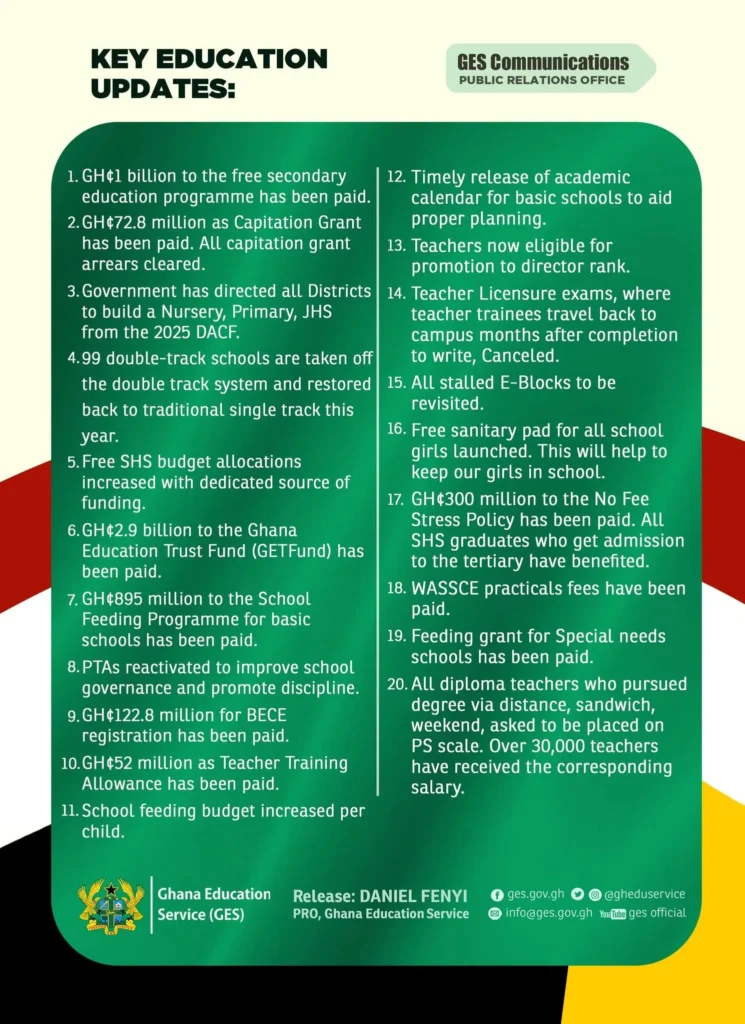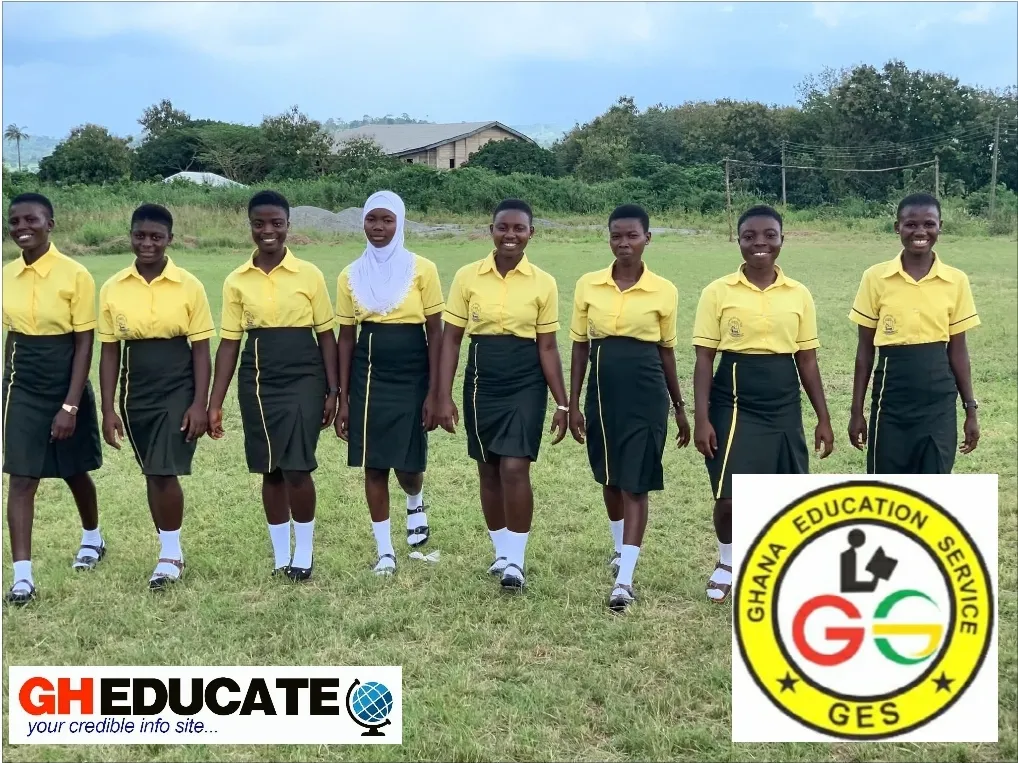The Ghana Education Service (GES) has outlined major interventions to transform the country’s education system, with the return of 99 double-track senior high schools to a single-track calendar topping the list.
From October 2025, when the 2025/2026 academic year begins, these schools will no longer run the shift-based system introduced to manage high enrolment under the Free SHS policy. The move, according to GES, will help restore normal teaching and learning hours, ease pressure on infrastructure, and improve the overall quality of education.
This announcement comes alongside a string of financial and policy interventions aimed at supporting both students and teachers. So far, GH¢1 billion has been released to fund the Free SHS programme, with an additional GH¢72.8 million paid to settle arrears under the Capitation Grant. Another GH¢2.9 billion has been released to the Ghana Education Trust Fund (GETFund), ensuring continued investment in infrastructure and learning resources.
Speaking on the reforms, GES officials explained that these measures are designed to relieve the pressures faced by schools and to restore confidence in Ghana’s education system. “The single-track calendar will give students more time in the classroom and return a sense of stability to teaching,” an official noted.
The government has also settled GH¢895 million for the School Feeding Programme, GH¢122.8 million for BECE registration fees, GH¢52 million in Teacher Training Allowances, and GH¢300 million to sustain the No Fee Stress Policy, which relieves financial burdens for SHS graduates progressing into tertiary institutions.
Beyond funding, important structural changes are being introduced. The Teacher Licensure exams that forced graduates to return to campus months after completion have now been cancelled, allowing a smoother entry into the profession. Teachers are also now eligible for promotion to the director rank, while all stalled E-Block projects across the country are to be revived.
Special attention has been given to issues of equity and welfare. Free sanitary pads are being distributed to schoolgirls to reduce absenteeism, while feeding grants for special needs schools have been cleared. Parent-Teacher Associations (PTAs) have also been reactivated nationwide, aimed at strengthening community support for schools and instilling greater discipline.

Teachers have not been left out of these reforms. More than 30,000 diploma holders who furthered their education through distance, weekend, or sandwich programmes have finally been placed on the professional salary scale, a long-awaited recognition of their academic advancement.
As Ghana’s education system undergoes these sweeping changes, stakeholders say the focus remains on creating an environment where every child can learn with dignity, and where teachers feel valued for their contribution to shaping the nation’s future.
Keep following www.gheducate.com for credible news and updates.




